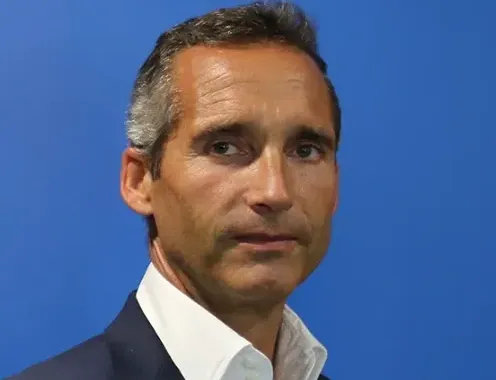Cedric Hyde - Regional CFO - Merck Serono


What are your thoughts on the upcoming Ecopop Referendum?
Regardless of the outcome, for Switzerland it is potentially a message to the outside world which is not good for our global image. If you look at it together with the February 9th 2014 vote there is just the slight concern that our neighbouring countries will not be happy with the messages that are conveyed.
The competitiveness of the Swiss economy is based on a set of framework conditions, which include a highly skilled and multicultural workforce. Irrespective of the results of the votes, the simple fact that the Swiss people are arguing over this kind of subject matters is most likely not perceived as an appealing signal when it comes to attracting talents to Switzerland.
What is the Merck position on Corporate Social Responsiblity (CSR)?
At group level we have a report on all of our CSR activity - it is available here:
http://reports.merckgroup.com/2013/cr-report/servicepages/welcome.html
It is a substantial investment, but we are keen on it, therefore it is something we are very pro-active about. Let me provide two examples relating to diversity:
Take the opportunity to master two or three languages. Communication and therefore language are very important. Internationally, English generally prevails. However, in Europe for finance professionals, and also for scientists and other professionals with a cross-border scope of activities, it is a genuine advantage to master other languages.. Although English remains the main language in today’s business environment, if I was 25 now, I would probably try to learn Chinese.
What has been your best, or worst, interview experience?
My worst hiring experience was really quite fascinating. The candidate tried to force himself into the position by virtue of key personality elements he simply did not have. I was interviewing for a finance position with precise needs in terms of management style. The candidate was clearly very motivated for the job, and seemed to be trying to convince himself, probably before, and certainly during the interview, that he could do this job while the required management style was quite obviously not fitting with what I could perceive as the candidate’s personality and aspirations. I really think this was the worst thing to do – the candidate was, consciously or not, tricking himself. If I had hired him it would have been terrible for him! In this case, the whole interview was like a Greek Tragedy. You could see the negative outcome that was underway, but you could not do anything to prevent it.
The best experience from my side, as an interviewee, eventually derived from a situation where I was completely unprepared. I had gone for an interview at a company, and as I was being shown out, we bumped into one of the interviewer's colleagues, and he asked me, off the cuff, if I was prepared to interview for a different position with him. So I said yes. It was to his credit that this was a good interview. He was able to describe accurately and in simple terms the requirements of the position to me, which I had no prior understanding of (since I was not prepared). It was an appealing but overall honest introduction. This led me to have an open mind about it. I ended up having a good interview, and eventually we agreed that I would take the second position. I credit the second interviewer with his ability to select the right candidate, and present the role to someone who wasn't even expecting it. An interesting point here is that my unpreparedness meant I was more open-minded - I had not formed any opinions during my preparation.
What advice would you give to someone who is one day looking to move into a leadership role (Senior Finance Manager/CFO Level)?
This question reminds me of a discussion I once had with a fairly senior manager, about why one manager would perform better than another. We kept coming back to one quality - HONESTY. Always tell the truth. Consider how you deliver the message, but make sure everybody gets it. Structure your message, do your homework properly (different people will react differently to different messages), so you can pinpoint those who may need extra clarification. This simple character trait will enable you to concentrate on positive actions, as opposed to having to be in defensive mode all the time. To be a leader, you need to be trusted. Humility in the good times is also a good trait.
Who would you say the most important figure in business is, and why?
In my own professional life, Mr Ernesto Bertarelli was the most important business leader who has had the most influence on the way I think and the way I act in a business environment. When I had the privilege of being part of his organization, his leadership was very impressive, and it is quite visible citing his work with the America’s Cup. His leadership style at the Serono Group, especially in times of difficulty, was quite frankly amazing. Mr Bertarelli has mastered two skills that are generally hard to combine in one single manager. He had the boardroom strategic communication mastered, as well as the media communication, but he was also very operations focused with strong interpersonal skills. He would literally walk the floor on a regular basis, discussing issues and opportunities, asking for ideas for improvement from anyone (one of his skills was creating minimal disruption in the organization with these ” missions”?). Mr Bertarelli would then somehow use this information in order to feed the boardroom discussions and decisions. He made this operational closeness part of the culture at Serono, and everybody became pretty comfortable with it by the end.






You can also use your social account to sign in. First you need to:
Accept Terms & Conditions And Privacy Policy